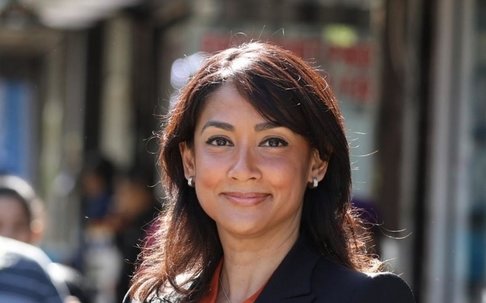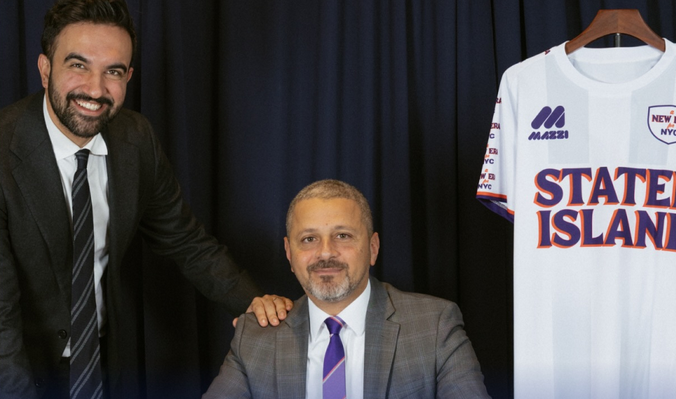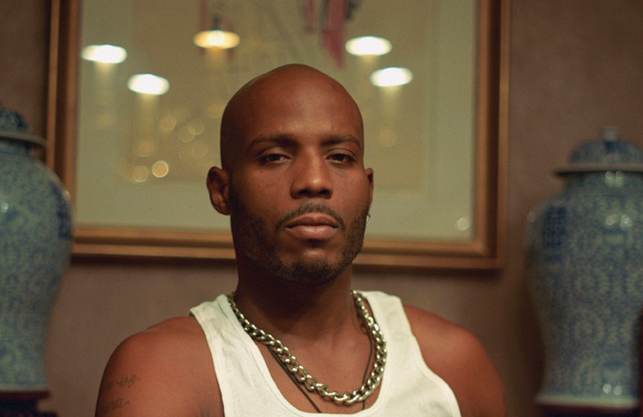[Queens District Attorney Race]
Mina Malik said she is best candidate because “I have already done the criminal justice reform that everyone is talking about.”
Photo: Antonya Jeffrey
Former Special Counsel Mina Malik, to then Brooklyn District Attorney Ken Thompson, said she is the best candidate to be the next Queens District Attorney because “I have already done the criminal justice reform that everyone is talking about.”
Malik is running in the June 25 primary race against: Tiffany Caban, Jose Nieves, Betty Lugo, Judge George Lasak, and Queens Borough President Melinda Katz.
Thursday, the Black Star News spoke to Malik about her aspirations to head the Queens District Attorney’s Office. We first asked about the Chanel Lewis case.
“The case has obviously been fraught with a lot of different issues,” said Malik. “The first jury ended up in a hung jury, which was a mistrial, and the second jury end up finding a guilty verdict within a matter of hours of deliberations. And so, I believe the case is coming up on appeal. As I start a conviction review unit, in the Queens DA’s Office, modeled on the one I started in Brooklyn, with DA Ken Thompson, I imagine that the Chanel Lewis case will come to the conviction review unit for a review with a fresh set of eyes.”
The Black Star News next asked Malik about her platform pledge to “hold law enforcement accountable” and “prosecute police misconduct.”
“So, I was the executive director of the Civilian Complaint Review Board,” said Malik. “And throughout my entire lifetime, having witnessed acts of police brutality and police misconduct I firmly believe that the police and law enforcement should be held accountable for any misconduct that they commit. So, as executive director of the Civilian Complaint Review Board, who was in charge of investigating and prosecuting cases of police misconduct such as excessive use of force, abuse of authority, discourtesy and offensive language, it is very important that we hold officers accountable. And as executive director I made sure that some of the highest profile cases were looked at with an objective eye.”
Malik says Officer Daniel Pantaleo’s administrative trial was initiated by her.
“The CCRB, under my leadership, is the only government agency that has found the officer liable in the Eric Garner case, and that is why the case recently went to trial,” said Malik. “Because while I was executive director, I made sure that some of the reforms I implemented were more in-depth investigations, timelier investigations, more proactive prosecutions, and timelier prosecutions. This wasn’t the only high-profile case I had to deal with. I had to deal with the case involving tennis pro James Blake who was accosted by a detective outside of the Grand Hyatt Hotel, as well as Atlanta Hawks player Thabo Sefolosha who was accosted outside of a nightclub.” Malik also stressed that “it is extremely important that as district attorney you have the strength, and the backbone, and the wherewithal, to stand up to the powerful forces of law enforcement unions as a well as the New York City Police Department so that you can hold officers accountable, where they need to be held accountable. It extremely important for public trust, and public confidence in our government and in the district attorney’s office. And that’s what I plan to do.”
The Black Star News then asked Malik about the promises she made to “eliminate prosecutorial bias.”
“With respect to prosecutorial bias, one of the things that is sometimes inherent in a prosecutorial agency, particularly where the prosecutors do not come from the communities that the office serves, is that there is a bias, an implicit bias” said Malik. “One of the things that I plan to do is have training sessions, so that we can identify prosecutors that have, and hold, implicit bias so that they can be addressed going forward. I plan to have cultural sensitivity training, implicit bias training, sensitivity training in terms of different communities in Queens. And these all go to making sure that our prosecutors are more in tune with the diverse communities that the Queens District Attorney’s Office serves, as well as making sure that we are trying to eliminate prosecutorial bias.”
Malik also talked about implementing “open discovery” and expanding “Brady disclosures.”
“As Deputy Attorney General [in Washington D.C.] we had a policy where we made sure that we looked at each and every officer involved in any particular case,” said Malik “And any questionable material that we found that could be deemed Brady material we turned it over to the defense. And, I think that’s what needs to happen as district attorney. We need to make sure that our prosecutors are looking into the background of each and every single officer involved with a case and then turning over the requisite material that could question the officer’s credibility, or, could be deemed Brady material. So, an example of that is the Civilian Complaint Review Board has files on certain officers. And so, our prosecutors should be requesting the Civilian Complaint Review Board files with respect to any officers involved in cases reviewing them and bringing over any information to the defense regarding the officers credibility, or, regarding Brady material.”
The Black Star News questioned the candidate about her pledge to “eliminate economic oppression” by ending “cash bail” and by minimizing “fines and fees.”
“So, with respect to eliminating cash bail, obviously cash bail has been viewed as a poor person’s tax,” said Malik. “Someone shouldn’t be incarcerated and held on bail simply because they can’t afford to pay their bail amount. It’s very important that we keep people who are accused of crimes as connected to their communities, their support systems, their legal counsel, as much as possible. And so, there’s actually a new law that’s going into effect as of January 1, 2020, which eliminates cash bail in most circumstances. And the question is who is the best person suited to make sure that the new law is implemented in the office. Because it’s ok if there is a law in effect, but if it’s not being implemented then that’s a problem. And so, we have to make sure that we are eliminating cash bail usage wherever we can. Bail is simply a means of making sure a person returns to court and someone shouldn’t be held in on bail because they simply can’t afford to pay bail.”
We next asked Malik about ending low-level drug prosecutions.
“Historically, there have been a number of offences that have been prosecuted which do nothing but saddle a person with a criminal conviction and effect their ability to get a job, housing, a loan, sometimes their ability to get a license or education,” said Malik. “And so, it’s extremely important that as we’re looking towards the 21 Century modern-day prosecutorial office that we’re eliminating the prosecution of low-level offences that have a negative impact and have collateral consequences on people who are convicted of these low-level offences. For example, as special counsel to Brooklyn Attorney Ken Thompson, we were the first prosecutor’s office to make sure that we were not prosecuting low-level marijuana offences and the city, initially, did not want to follow suit. We brought it to the mayor’s office. We brought it to the police commissioner, at the time, and they rejected the policy. And we, as a prosecutorial agency, said well you can reject the policy, and you might not agree with us, but at the end of the day we’re the ones who are not going to be prosecuting these types of cases. And so, you’re resources will be better used elsewhere. So, things like low-level marijuana possession, or low-level drug possession, loitering for the purposes of prostitution, making sure we’re not criminalizing people involved in the sex-work industry, they changed the gravity-knife law but I’m not going to count that one. But really these low-level offences that do nothing to impact public safety in a positive way.”
The Black Star News then asked about the candidate’s promise to “diversify the workforce” in the Queens District Attorney’s Office.
“The district attorney wields great power,” said Malik. “It is the top law enforcement official in a county of 2.4 million people, the most diverse county in the entire county, if not the world. And the leadership, and the office itself, needs to reflect the community that it serves. This office is important in terms of criminal justice, in terms of public safety, and in terms of making policy that affects our youths in our Black and Brown communities of color, and public safety overall. So, when you have a law enforcement agency that is serving a diverse community you have to make sure that each and every member of the community is at the table where important policy-making decisions are made. And we have to make sure that the leadership, and the rank-and-file, in the office is reflective of Queens County. Right now, it is not. And that change has to come. And the time for change is now.”
We then questioned Malik regarding what she would say to those asking if she ever recommended any of these policy proposals when she worked as an ADA, in Queens, for 15 years.
“While I was at the District Attorney’s Office in Queens, I dealt with the most heinous crimes and cases,” said Malik. “So, I was a Special Victims prosecutor. I dealt with child homicides, physical sexual abuse, adult sex crimes, human trafficking cases, domestic violence, crimes against the elderly. I was not in a policy-making position, at the time, not was I in a leadership position at the top of the agency at the time. I left the agency and became Special Counsel to Brooklyn DA Ken Thompson. I left the agency and I became the Executive Director of the Civilian Complaint Review Board. I left the agency and I became Deputy Attorney General to Attorney General Karl Racine [in Washington D.C.], the first Haitian elected attorney general in the United States. And so, all of those experiences have informed my vision, my new vision, for the Queens District Attorney’s Office.”
We finally asked candidate Mina Malik to tell Black Star News readers why she thinks she is the most uniquely qualified to be the next District Attorney of Queens.
“What makes me more qualified than any other candidate in this race are three things,” said Malik. “Number one, my lived experience of growing up as an immigrant, in Queens, as a woman of color, and as a mother to two Black sons, who has had to have conversations with them about how to survive a police encounter on the street, or whether they are driving a family car. Number two, my criminal justice experience of over twenty years and having worked on both the defense side, at the D.C. Public Defender Service [PDS], as well as the prosecution side. Number three, my criminal justice reform experience. Everyone in this race is talking about criminal justice reform, but nobody has actually done it. I have already done the criminal justice reform that everyone is talking about. I’ve started diversion courts for people with mental health issues. We’ve expanded a drug court for people with substance abuse disorder. I started hope court for young human trafficking victims, as young as 11-years-old. We did anti-truancy initiatives to break the school-to-prison pipeline. I started a restorative justice initiative where we not only expanded restorative justice for juveniles, but we also expanded restorative justice for the 18 to 24-year-olds. And I already have done the conviction review unit which is the gold standard, and national model, for the entire country, as well as not criminalizing low-level offences. So, every single thing that everyone is talking about, I have already done. And I have worked alongside police officers, and I have held them accountable for their misconduct.
So, I check off all the boxes. This is an agency of 600 people, 300 prosecutors, 300 unionized workers. It is a big responsibility, and a huge job that’s not to be taken lightly. We’re talking about management of an organization of 600 people and implementing culture change and criminal justice reform at the same time. I’ve already done that in three major organizations, the Brooklyn District Attorney’s Office, which is one of the prosecutor’s offices in the country, the Attorney General’s Office in Washington D.C., and the Civilian Complaint Review Board.”







